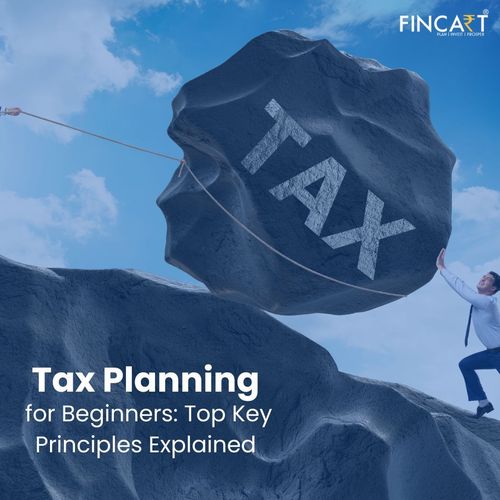Table of Contents
ToggleBeing an Indian citizen, we all know that filing taxes is a crucial thing to do. While it may be a tedious task, it is an important one that most people need to accomplish. Those who have been filing taxes for a long time are still used to it, but tax planning for beginners is complex. Navigating the realm of taxes can be daunting for them, but with effective tax planning, financial clarity is within reach.
This introductory guide demystifies tax planning, offering essential insights to help individuals make informed decisions, optimize finances, and confidently embark on their journey toward a stable financial future.
Identifying taxable income
Identifying taxable income forms the cornerstone of effective tax planning. It encompasses wages, self-employment earnings, rental income, and investments. Understanding what constitutes taxable income empowers beginners to accurately report and calculate their tax liability. This knowledge lays the foundation for informed financial decisions and proactive tax-saving strategies.
Tax-saving investments and deductions
Taxpayers are always looking for ways to save money. To simplify things, the income tax of India includes various sections that guide you in claiming deductions. Many investment opportunities exist where you can save tax if you already invest in different avenues. Consider the sections below if you are planning to invest in order to save taxes!
- Section 80C (Deductions on Investments)
- Section 80D (Deduction for the premium paid for health insurance)
- Section 80CCD (National Pension Scheme)
Filing income tax returns (itr) made easy
Our advisors help you save taxes and achieve your financial goals by linking your investments to products that help you save taxes. Personalized tax planning helps you assess investment value, inflation, expenses, and tax. In addition to protecting you from future audits or legal proceedings, it ensures that your tax savings are generated under the law.
- During the tax planning process, we focus on two significant aspects. Tax savings from standard deductions & reducing tax liabilities on existing investments are our focus.
- Our team understands and optimizes your salary breakup/income sources.
- To preserve the maximum amount of your tax, we offer a variety of tax-saving investment options under section 80C, as well as section 80CCD. Keeping your tax liabilities to a minimum is our core focus.
Tax planning and retirement: building a tax-efficient corpus
The retirement years are pleasant, a time to catch up with family and, most importantly, a time to catch up with yourself. However, a retirement only turns out to be great if you are financially secure. Thus, for this retirement planning is crucial but with consideration of tax planning too!
In India, constructing a tax-efficient retirement corpus requires strategic measures. Utilize tax-saving investment options like the Public Provident Fund (PPF), National Pension System (NPS), and Employee Provident Fund (EPF). Consider Equity-Linked Savings Schemes (ELSS) for potential tax benefits and higher returns. Regularly assess and optimize your portfolio within the framework of Indian tax regulations.
Seeking professional tax advice: when and why?
Seeking professional tax advice is essential when navigating complex tax planning and saving advice. Tax professionals offer expertise in changing tax laws, deductions, credits, and exemptions. Their insights can optimize your financial decisions, ensuring you’re compliant while maximizing your savings. Consulting experts provide a tailored approach that aligns with your unique financial situation and long-term goals with proper tax planning.
Common tax planning mistakes to avoid
Tax planning is all about avoiding common mistakes that can lead to serious problems in the future.
- In the first place, procrastination can lead to missed chances for deductions and credits as a result of procrastination.
- Secondly, it is possible to end up overpaying if you overlook any eligible deductions or credits. There is also a possibility of missing out on valid deductions due to improper record-keeping.
- As a result, it is important to consider the long-term impact of financial decisions when making them.
- Last but not least, if you do not keep up with the changes in tax laws, you will likely end up out of compliance.
The best way to avoid these pitfalls is to seek professional advice, stay organized, and plan ahead. The good news is that if you are able to avoid these mistakes, you can optimize your tax strategy and potentially save a lot of money.
Conclusion
In conclusion, effective tax planning and saving is a cornerstone of financial success. By carefully strategizing and leveraging available deductions, credits, and investment options, individuals can minimize their tax burdens while optimizing savings. Regular reviews, staying informed about tax law changes, and seeking professional advice all contribute to a strong foundation for long-term financial stability and growth.




